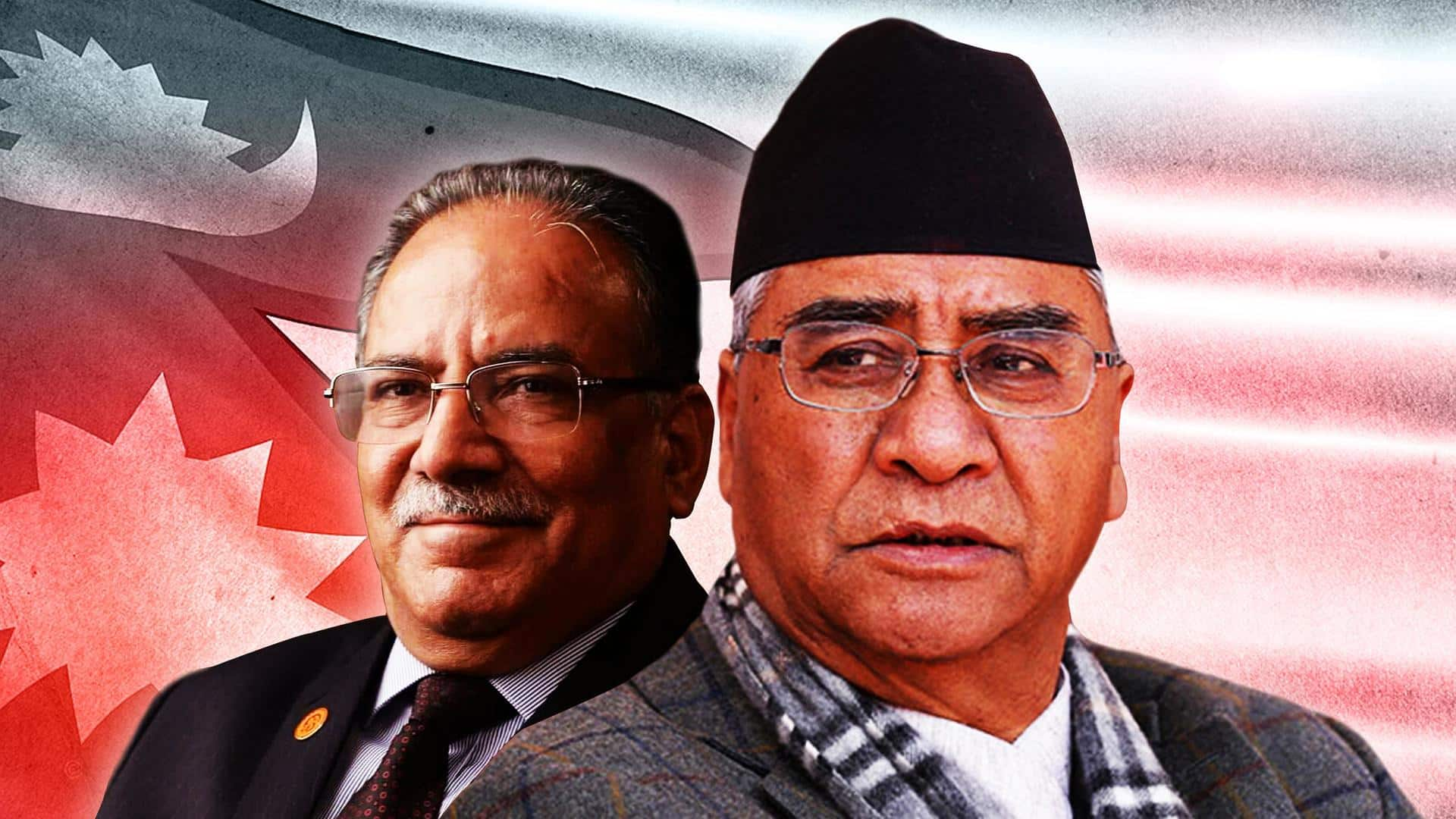
Nepal elections: PM Deuba, Prachanda agree to form new government
What's the story
Nepal's political scene witnessed a significant development on Sunday.
The country's Prime Minister Sher Bahadur Deuba and chief of the Communist Party of Nepal (CPN)-Maoist Centre Pushpakamal Dahal Prachanda agreed to continue their ruling alliance to form a new majority government in the country.
Currently, top political parties have intensified their campaign efforts for the formation of a new government to end political instability.
Context
Why does this story matter?
The development comes just two days after the early results of the House of Representatives (HoR) and seven provincial assemblies gave the ruling coalition an edge over other parties.
As per reports, the top ruling parties the Nepali Congress and CPN-Maoist Centre are now formulating arrangements for the next government.
The meeting between Deuba and Prachanda also discussed the possibilities of the coalition.
Statement
What did officials say?
"The two leaders have reached an understanding to continue the present ruling alliance," said Ganesh Shah, Standing Committee member of the CPN-Maoist Centre.
He said Janata Samajwadi Party led by Upendra Yadav would also join the ruling alliance led by the Nepali Congress.
"With the support from both the Madhesi parties, we will have a comfortable majority to form the government," Shah told PTI.
Information
More on coalition, and poll gains so far
As per reports, the five-party ruling coalition has earned 82 seats, while the CPN-UML alliance led by former Prime Minister KP Oli has secured 52 seats in the direct election.
The coalition comprises the Nepali Congress led by PM Deuba, CPN-Maoist, led by Prachanda, the CPN-Unified Socialist, led by Madhav Nepal, Mahantha Thakur's Lokatantrik Samajwadi Party, and the Rashtriya Janamorcha, led by Chitra Bahadur.
Information
Decisive majority needs 138 seats
The 275-member House of Representatives will be elected by direct vote, with 165 chosen under a proportional electoral system. A decisive majority requires 138 seats for a party or alliance.
India
Indian ambassador crucial meeting with political leadership
Meanwhile, according to reports, the Indian Ambassador to Nepal Naveen Srivastava is meeting with Nepal's top political figures as the ballots for the Federal Parliament and provincial legislatures are being counted.
Sources close to the Nepali Congress and the Maoist Centre told PTI that Ambassador Srivastava met with PM Deuba and Prachanda on Friday and Saturday respectively.
Details
Challenges for new government
Nepal has seen periodic political instability since the end of the Maoist insurgency.
Also, no prime minister held office for the full term since the end of the civil war in 2006.
The country also suffered poor economic progress and the conflict between the parties is blamed for it.
The upcoming government will face multiple issues especially economic instability and bad ties with neighbors.